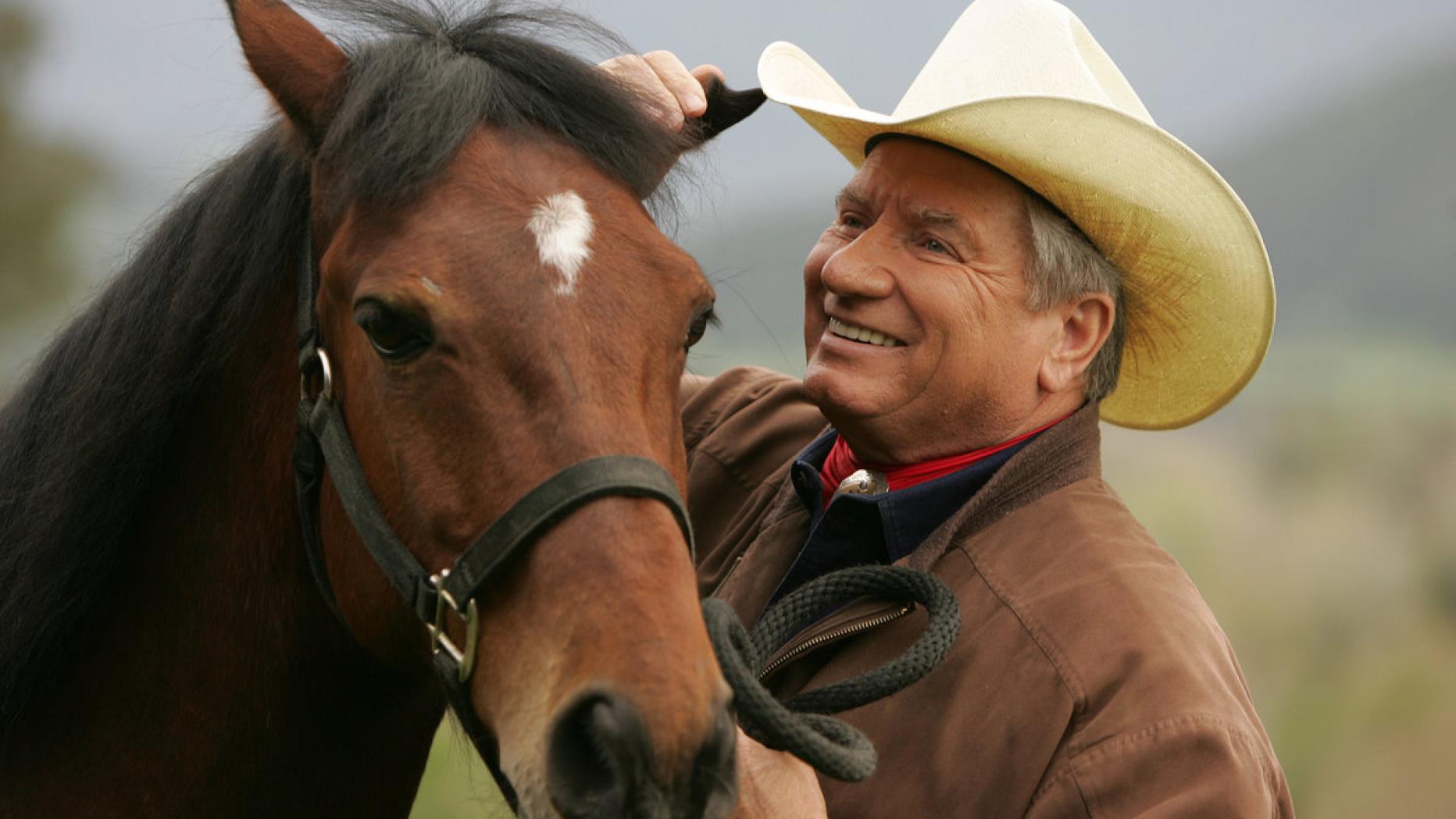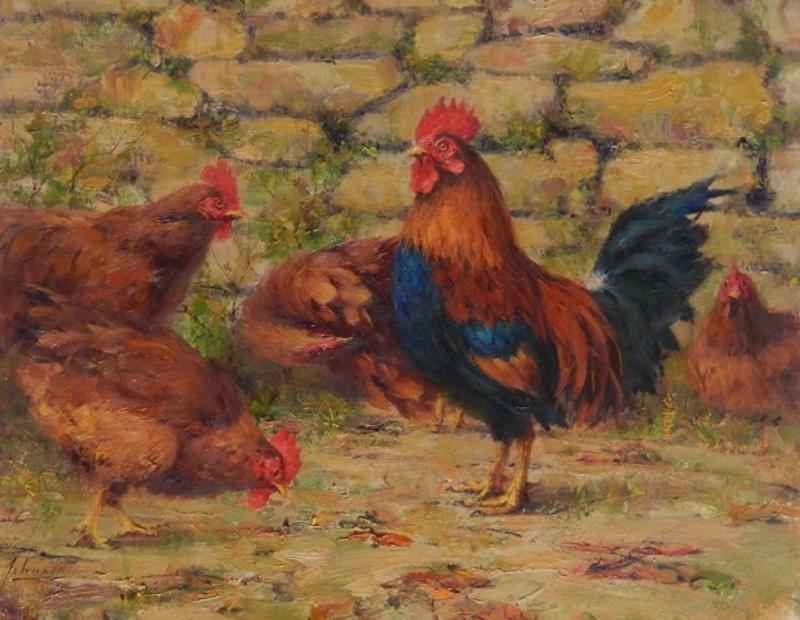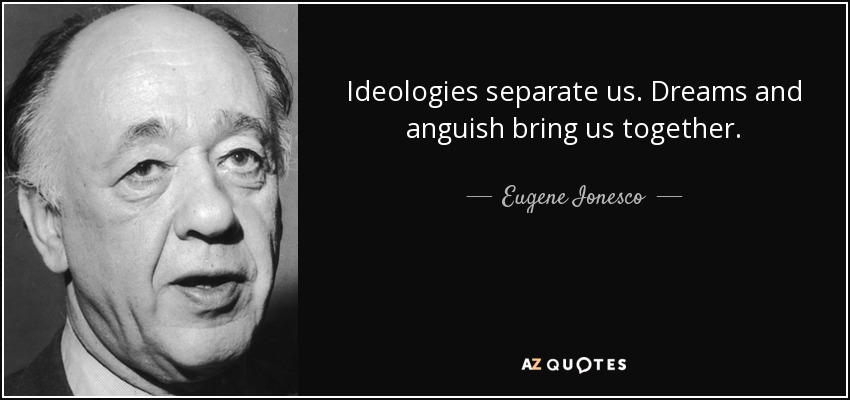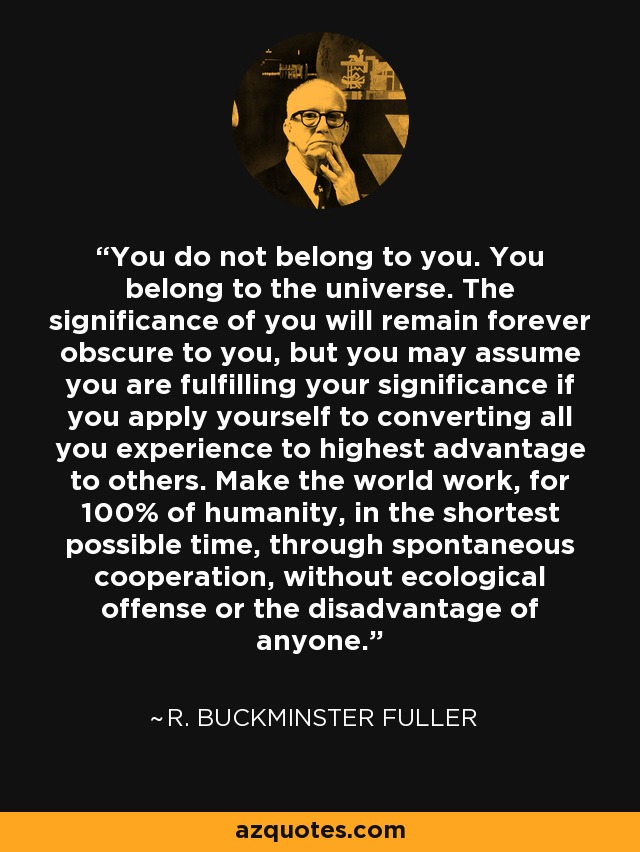
Wiki / Vision
Inhaltsverzeichnis: (verbergen)
 Amaryllis belladonna, Wagga Wagga, |
|
Vision without action is a daydream. |
|
Es ist wichtig, für seine Träume ein paar Kämpfe durchzu-
Das Auge gibt dir Licht. Wenn deine Augen klar sehen, wirst du dich überall sicher bewegen können. Wenn du nun schlecht siehst, tappst du unsicher herum. Hast du aber Gott aus den Augen verloren, wie schrecklich wird dann deine Finsternis sein! Matthäus 6, 22-23 (NT) |
|
Ich habe einen Freund namens Monty Roberts, dem eine Pferderanch in San Ysidro gehört. Er ließ mich sein Haus benutzen, um Veranstaltungen zur Finanzierung von Programmen für gefährdete Jugendliche abhalten zu können.  Der Pferdeflüsterer Monty Roberts "Ich möchte erzählen, weshalb ich Jack mein Haus benutzen lasse. Es geht alles auf eine Geschichte über einen jungen Mann zurück, den Sohn eines umherwandernden Pferdedresseurs, der von Stall zu Stall zog, von Pferderennbahn zu Pferderennbahn, von Farm zu Farm und von Ranch zu Ranch, um Pferde zu dressieren. So wurde die High-School-Ausbildung des Jungen ständig unterbrochen. In der Oberstufe wurde er gebeten, einen Aufsatz darüber zu schreiben, was er werden und tun wolle, wenn er älter wäre. Am selben Abend schrieb er einen sieben Seiten langen Aufsatz, die sein Ziel beschrieb, eines Tages eine Ranch zu besitzen. Er schrieb sehr ausführlich über seinen Traum und zeichnete sogar einen Plan ei- ner zweihundert Morgen großen Pferderanch, der die Standorte der Gebäude, der Ställe und der Rennbahn zeigte."
Dann zeichnete er einen genauen Grundriss für ein vierhundert Quadratmeter großes Haus, das auf der Traumranch "Komm nach der Stunde zu mir."
Der Junge mit dem Traum ging nach der Stunde zu dem Lehrer und fragte ihn: "Warum habe ich ein F bekommen?"
Der Lehrer sagte: "Dies ist ein unrealistischer Traum für einen Jungen wie dich. Du hast kein Geld. Du stammst aus einer Wanderar- beiterfamilie. Du hast keine Rücklagen. Der Besitz und Unterhalt einer Ranch kostet viel Geld. Du musst das Land kaufen. Du musst den anfänglichen Zuchtstamm bezahlen, und später musst du hohe Zuchtgebühren bezahlen. Es ist unmöglich, dass du das jemals schaffen könntest." Dann fügte der Lehrer hinzu: "Wenn du diese Arbeit mit einem realistischeren Ziel neu beschreibst, werde ich die Note noch einmal überdenken."
Der Junge ging nach Hause und dachte lange und angestrengt darüber nach. Er fragte seinen Vater, was er tun solle. "Sieh mal, Sohn, du musst das selbst entscheiden. Ich glaube allerdings, es ist eine sehr wichtige Entscheidung für dich."
Nachdem er eine Woche lang überlegt hatte, überreichte der Junge dem Lehrer schließlich denselben Aufsatz, ohne "Sie können das F stehen lassen, und ich kann meinen Traum behalten."
Monty wandte sich dann an die versammelte Gruppe und sagte: "Ich erzähle euch diese Geschichte, weil ihr in meinem Vierhundertquadratmeterhaus mitten in meiner Zweihundertmorgenranch sitzen. Diesen Aufsatz habe ich immer noch gerahmt über meinem Kamin hängen."
Er fügte hinzu: "Der beste Teil der Geschichte ist, dass derselbe Lehrer im Sommer vor zwei Jahren dreißig Schulkinder auf meine Ranch brachte, um dort eine Woche lang zu zelten. Beim Abschied sagte mein ehemaliger Lehrer zu mir:
'Schau, Monty, ich sage dir jetzt etwas. Als ich dein Lehrer war, war ich so etwas wie ein Traumdieb. Damals habe ich vielen Kindern ihren Traum gestohlen. Glücklicherweise hattest du genug Grips, deinen Traum nicht aufzugeben.'"
Erlaube niemandem, deinen Traum stehlen. Folge deinem Herzen, was auch immer geschieht. |
| Quelle: ► Jack Canfield (*1944) US-amerikanischer Motivationstrainer, Autor, Mark Victor Hansen (*1948) US-amerikanischer Motivationssprecher, Trainer, Autor, Hühnersuppe für die Seele. Geschichten, die das Herz erwärmen, Goldmann Verlag, 1993, Taschenbuchauflage 1. November 1996 |
| Siehe auch: ► Geschichtensammlung und ► Effektive Nutzung von Emotionen – Pferdeweisheit und die Macht der Herde |
| See also: ► Don't hand over your dream to the dream stealers |
|
Persönliche Bekenntnisse – Hellsichtigkeit

Zukunftsaussicht
Die universelle Abschlussprüfung der Menschheit und das Tauziehen zwischen der Utopie oder der Auslöschung
Schlussfolgerung

|
Literaturzitate
Fernseh- und Filmzitate
Personal avowals

Recommendations
Question
Appeals

Future prospects
Conclusions

Insights


|
Literary quotes
Movie lines
|
| Sources featuring Peter Gold, US American professor of anthropology, non-profit institution of higher education California Institute of Integral Studies (CIIS), research associate at the "Laboratory of Anthropology", Museum of New Mexico, director of the "Ancient Ways Project", tibetologist, practitioner of Tibet's Buddhist philosophy and musical traditions, author of four books on Tibetan culture ► Cited in: "The Great Reconciliation of Tibetan-Navajo mysteries at The Great Rethinking Palm Springs", presented by the dissolved yahoo group thc-ministry.net, 17. November 2003 ► Blogspot A Once and Future Vision, presented by Humane Being, 15. February 2007 ► Blogspot The Two Theisms, presented by Humane Being, 22. June 2008 |
|
|
| Source: ► Blog article by Peter Gold, US American professor of anthropology, California Institute of Integral Studies, research associate, Laboratory of Anthropology, Museum of New Mexico, director of the Ancient Ways Project, tibetologist, practitioner of Tibet's Buddhist philosophy and musical traditions, author of four books on Tibetan culture, The West & the Rest, 23. April 2007 |
| ||||||||||||||||||||||||||||||||||||
| See also: ► Skepticism and ► Interdependence |
| ||||||||||||||||||||||||
| References by Richard Barrett, FRSA (*1945) British social commentator, speaker, author on the evolution of leadership and human values in business and society ► Culture & Vision, presented by Barrett Values Centre ► Building a Values-Driven Organisation. A Whole System Approach to Cultural Transformation, S. 121-125, Butterworth-Heinemann, Boston, Routledge, 15. March 2006 |
| ||||||||||||||||||||||
| References: ► Culture & Vision, presented by Barrett Values Centre, undated |
| See also: ► Richard Barrett |
|
I have a friend named Monty Roberts who owns a horse ranch in San Ysidro. He has let me use his house to put on "I want to tell you why I let Jack use my house. It all goes back to a story about a young man who was the son of an itinerant horse trainer who would go from stable to stable, race track to race track, farm to farm and ranch to ranch, training horses. As a result, the boy's high school career was continually interrupted. When he was a senior, he was asked to write a paper about what he wanted to be and do when he grew up. That night he wrote a seven-page paper describing his goal of someday owning a horse ranch. He wrote about his dream in great detail and he even drew a diagram of a 200-acre ranch, showing the location of all the buildings, the stables and the track."
Then he drew a detailed floor plan for a 4,000-square foot house that would sit on a 200-acre dream ranch. He put a great deal of his heart into the pro- 'See me after class.'
The boy with the dream went to see the teacher after class and asked, "Why did I receive an F?"
The teacher said, 'This is an unrealistic dream for a young boy like you. You have no money. You come from a traveling family. You have no resources. Owning a horse ranch requires a lot of money. You have to buy the land. You have to pay for the original breeding stock and later you’ll have to pay large stud fees. There’s no way you could ever do it.'
Then the teacher added, 'If you will rewrite this paper with a more realistic goal, I will reconsi- der your grade.'
The boy went home and thought about it long and hard. He asked his father what he should do. His father said, 'Look, son, you have to make up your own mind on this. However, I think it is a very important decision for you.'
Finally, after sitting with it for a week, the boy turned in the same paper, making no changes at all, he stated, "You can keep the F and I'll keep my dream."
Monty then turned to the assembled group and said, "I tell you this story because you are sitting in my 4,000-square-foot house in the middle of my 200-acre horse ranch. I still have that school paper framed over the fireplace." He added, "The best part of the story is that two summers ago that same schoolteacher brought thirty kids to camp out on my ranch for a week."
When the teacher was leaving, he said, "Look, Monty, I can tell you this now. When I was your teacher, I was something of a dream stealer. During those years I stole a lot of kids' dreams. Fortunately you had enough gumption not to give up on yours."
|
| Source: ► Jack Canfield (*1944) US American motivational speaker, author, Mark Victor Hansen, Chicken Soup for the Soul, Chicken Soup for the Soul Publishing, 1993 |
| See also: ► Stories and ► Innate horse wisdom – Four stages of effective usage of emotions |
| Siehe auch: ► Lass dir deinen Traum nicht von Traumdieben stehlen |
|
 Asymmetrical appearance of the oscillating variable star Mira, NASA HST image, Hubble space telescope, 6. August 1997
|
| Source: ► Song The Impossible Dream, composed by Mitch Leigh, lyrics by Joe Darion, Broadway musical Man of La Mancha, 1964 |
| Audio versions: ► Video song The Impossible dream (with lyrics), interpreter Frank Sinatra, YouTube film, 2:32 minutes duration, posted 13. June 2011 ► Video songs The Impossible Dream (1971), interpreter Elvis Presley YouTube film, 3:01 minutes duration, posted 22. October 2010 |
| See also: ► Poems and ► Possibility and ► The impossible dreamer Don Quixote – Robert Fuller |
Links zum Thema VisionLiteratur
Literature (engl.)
Powerful critique of modern psychiatry, offering an alternative vision of how the natural healing process can be encouraged with compassionate therapy instead of being suppressed with coercive "treatment"
See also essay From Opinion to Belief to Knowing, 8. December 2005
Externe Weblinks
Visionäre Anbieter External web links (engl.)
Theory 1: Women are equally visionary but in a different way. Audio- und Videolinks
Audio and video links (engl.)
|
Englisch Wiki
Hawkins
1 Federal Convention (German Confederation)
Bundestag [German: Deutscher Bundestag, federal parliament of Germany since 1949 ⇑
2 Swords to ploughshares, cited in: Isaiah 2:3-5, Joel 3:10, Micah 4:3 (OT) ⇑
3 Video presentation by Jane Goodall (1934-2025) British primatologist, ethologist, anthropologist, UN Messenger of Peace, Helping humans and animals live together, presented by TED Talks, 25:12 minutes duration, filmed June 2007''', posted September 2008, posted on YouTube 8. September 2008 ⇑